
Ernst Heinrich Philipp August Haeckel was a German zoologist, naturalist, eugenicist, philosopher, physician, professor, marine biologist and artist. He discovered, described and named thousands of new species, mapped a genealogical tree relating all life forms and connected many terms in biology, including ecology, phylum, phylogeny, and Protista. Haeckel promoted and popularised Charles Darwin's work in Germany and developed the influential but no longer widely held recapitulation theory claiming that an individual organism's biological development, or ontogeny, parallels and summarises its species' evolutionary development, or phylogeny.
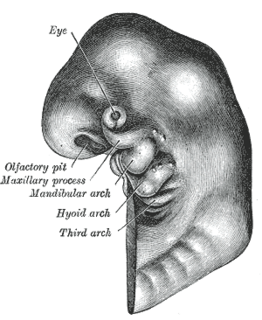
Embryo drawing is the illustration of embryos in their developmental sequence. In plants and animals, an embryo develops from a zygote, the single cell that results when an egg and sperm fuse during fertilization. In animals, the zygote divides repeatedly to form a ball of cells, which then forms a set of tissue layers that migrate and fold to form an early embryo. Images of embryos provide a means of comparing embryos of different ages, and species. To this day, embryo drawings are made in undergraduate developmental biology lessons.

Jena is a German city and the second largest city in Thuringia. Together with the nearby cities of Erfurt and Weimar, it forms the central metropolitan area of Thuringia with approximately 500,000 inhabitants, while the city itself has a population of about 110,000. Jena is a centre of education and research; the Friedrich Schiller University was founded in 1558 and had 18,000 students in 2017 and the Ernst-Abbe-Fachhochschule Jena counts another 5,000 students. Furthermore, there are many institutes of the leading German research societies.

Alfred Edmund Brehm was a German zoologist, writer, director of zoological gardens and the son of Christian Ludwig Brehm, a famous pastor and ornithologist.

The University of Jena, officially the Friedrich Schiller University Jena, is a public research university located in Jena, Thuringia, Germany.

Erwin Friedrich Theodor Stresemann was a German naturalist and ornithologist. Stresemann was an ornithologist of extensive breadth who compiled one of the first and most comprehensive accounts of avian biology of its time as part of the Handbuch der Zoologie. In the process of his studies on birds, he also produced one of the most extensive historical accounts on the development of the science of ornithology. He influenced numerous ornithologists around him and oversaw the development of ornithology in Germany as editor of the Journal für Ornithologie. He also took an interest in poetry, philosophy and linguistics. He published a monograph on the Paulohi language based on studies made during his ornithological expedition to the Indonesian island.
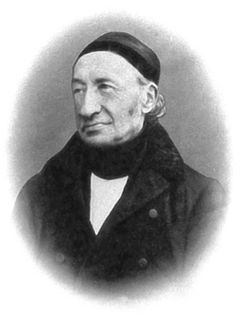
Christian Ludwig Brehm was a German pastor and ornithologist. He was the father of the zoologist Alfred Brehm.
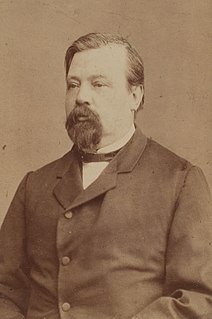
Karl Gegenbaur was a German anatomist and professor who demonstrated that the field of comparative anatomy offers important evidence supporting of the theory of evolution. As a professor of anatomy at the University of Jena (1855–
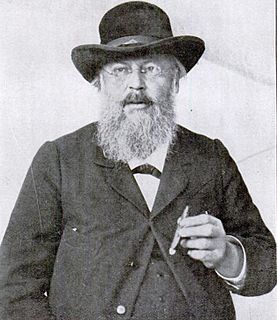
Felix Anton Dohrn FRS FRSE was a prominent German Darwinist and the founder and first director of the first zoological research station in the world, the Stazione Zoologica in Naples, Italy.

Oscar Hertwig was a German embryologist and zoologist known for his research in developmental biology and evolution. Herwig is credited as the first man to observe sexual reproduction by looking at the cells of sea urchins under the microscope.

Prof Karl (Carl) Theodor Ernst von Siebold FRS(For) HFRSE was a German physiologist and zoologist. He was responsible for the introduction of the taxa Arthropoda and Rhizopoda, and for defining the taxon Protozoa specifically for single-celled organisms.
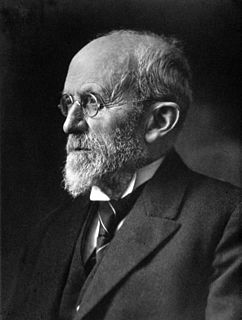
Richard Wilhelm Karl Theodor Ritter von Hertwig, also Richard Hertwig or Richard von Hertwig, was a German zoologist and professor of 50 years, notable as the first to describe zygote formation as the fusing of spermatozoa inside the membrane of an egg cell during fertilization. Richard Hertwig was the younger brother of Oscar Hertwig, who also analyzed zygote formation.

Adolf Naef was a Swiss zoologist and palaeontologist who worked on cephalopods and systematics. Although he struggled with academic politics throughout his career and difficult conditions during World War I and II, his work had lasting influences on the fields of phylogenetics, morphology, and embryology.

The Zoological Garden of Hamburg was a zoo in Hamburg, Germany that operated from 1863 until 1930. Its aquarium, which opened in 1864, was among the first in the world.

Willy Georg Kükenthal was a German zoologist. He was the older brother of botanist and theologian Georg Kükenthal (1864–1955). Kükenthal specialized in the Octocorallia and on marine mammals. He edited, along with Thilo Krumbach, a landmark series of eight volumes in the Handbuch der Zoologie series which extensively reviewed and compiled the state of zoological knowledge of the time.
Johann Wilhelm Haacke was a German zoologist born in Clenze, Lower Saxony, who served as Director of the South Australian Museum in Adelaide from 1882 to 1884.

Ludwig Hermann Plate was a German zoologist and student of Ernst Haeckel. He wrote a "thorough and extensive defence" of Darwinism, but before Mendel's work had been assimilated in the modern synthesis.
Heinrich Schmidt was a German archivist, naturalist, philosopher, professor and a student of Ernst Haeckel.

Arnold Lang was a Swiss naturalist, a comparative anatomist and student of German biologist Ernst Haeckel.
Alfred Richard Wilhelm Kühn was a German zoologist and geneticist. A student of August Weissmann, he was one of the pioneers of developmental biology. At a period when biology was largely descriptive, he collaborated with zoologists, botanists, organic chemists, and physicists conducting interdisciplinary studies, examining sensory biology, behaviour, and biochemistry through experiments on organisms.

















